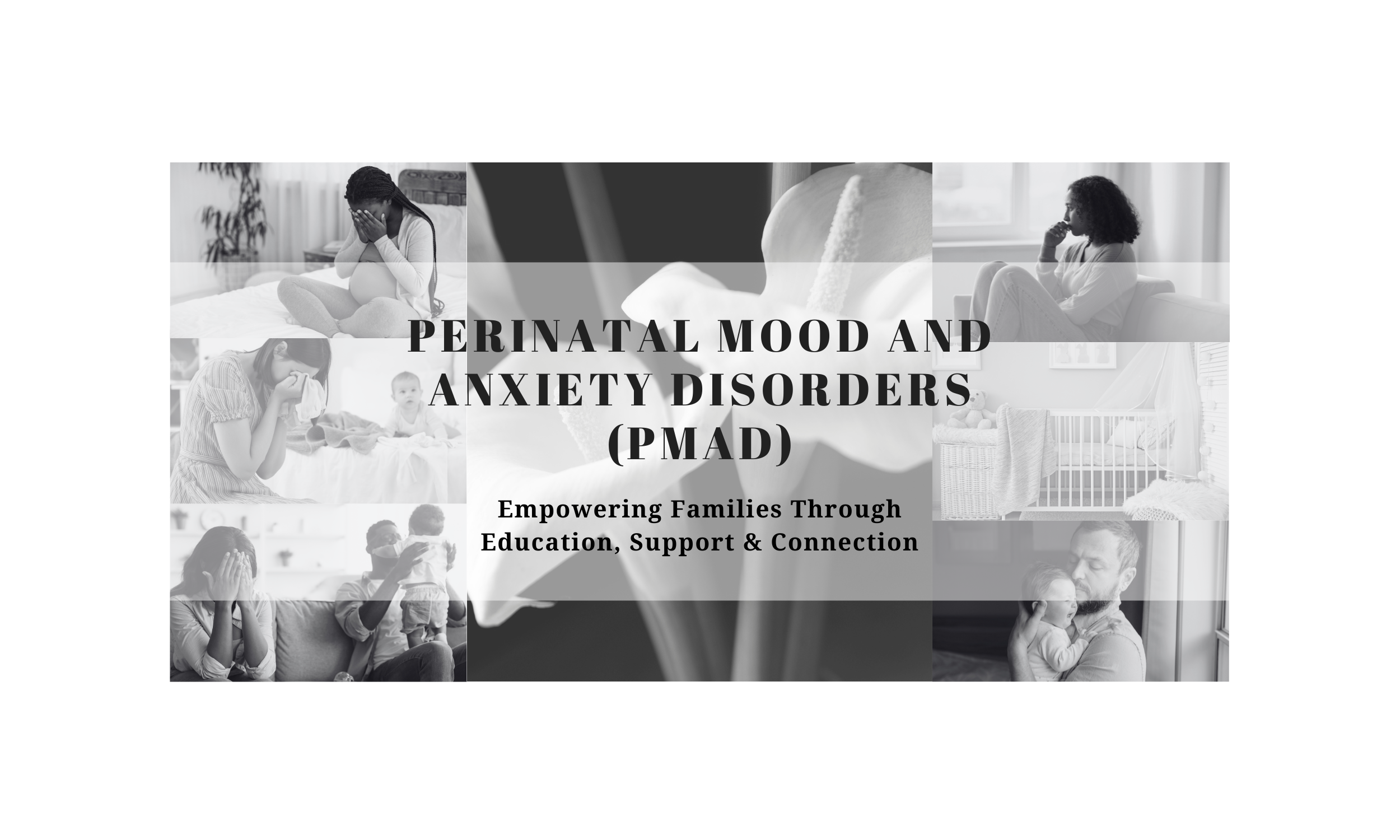
Perinatal Mood and Anxiety Disorders (PMAD)
People often describe pregnancy and the postpartum period as joyful, life-affirming experiences, and while that’s sometimes true, it doesn’t reflect everyone’s reality. Many birthing and non-birthing parents experience a range of emotional changes that go beyond the “baby blues.” If you’re feeling anxious, overwhelmed, sad, irritable, or disconnected during pregnancy or after birth, you’re not alone, and what you’re feeling is valid.
Navigating PMAD Together, Virtual Workshop
If you want to learn more about PMAD and how to get the support you need, you can attend the monthly 2-hour virtual workshop. Click here for more information.
Perinatal Mood and Anxiety Disorders (PMAD) is a group of emotional health conditions that can affect individuals during pregnancy and can mentally and emotionally impact the mother in the first two years after childbirth. These disorders are common, treatable, and nothing to be ashamed of.
PMAD includes:
Postpartum Depression
Perinatal Anxiety
Postpartum Obsessive-Compulsive Disorder (OCD)
Postpartum Post-Traumatic Stress Disorder (PTSD)
Bipolar Mood Disorders
Postpartum Psychosis (a rare but serious condition)
These conditions can show up in different ways and affect each person differently. Some people feel it right after birth. Others don’t notice anything unusual until months later. And some begin feeling off during pregnancy itself.
Signs to Watch For
You or a loved one may be experiencing PMAD if you notice:
Persistent sadness, hopelessness, or mood swings
Excessive worry or panic, especially about the baby’s health or safety
Difficulty bonding with your baby
Irritability or anger that feels out of character
Sleep disturbances unrelated to the baby's needs
Intrusive or distressing thoughts
Feeling numb or emotionally detached
Thoughts of harming yourself or others (seek help immediately)
It’s important to remember: experiencing PMAD is not a failure. It is not a reflection of your love for your baby or your ability to parent.
PMAD affects 1 in 5 new mothers and 1 in 10 partners. These numbers tell us that you are not the only one, and there is no shame in asking for help. Support can look different for everyone. It might mean talking to a trusted friend, speaking with a therapist, joining a support group, or exploring treatment options like counseling and medication. What matters most is taking the first step toward feeling like yourself again.
A Message of Hope
No matter how heavy things feel right now, healing is possible. There is support available, and there are people who care. You do not have to carry this alone. Every parent deserves to be emotionally supported and seen. If you’re struggling, or even if you’re just unsure, reach out. Your feelings are real, and they matter.
Support This Program
Make a charitable donation!
Click here to donate!